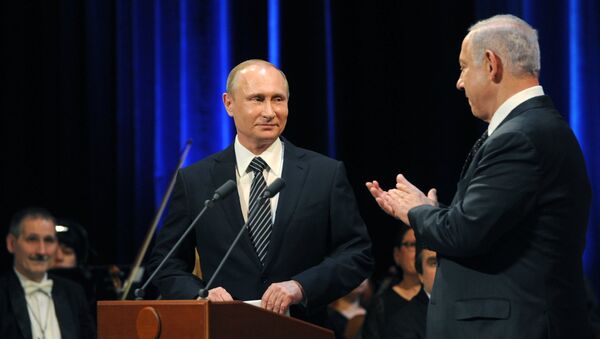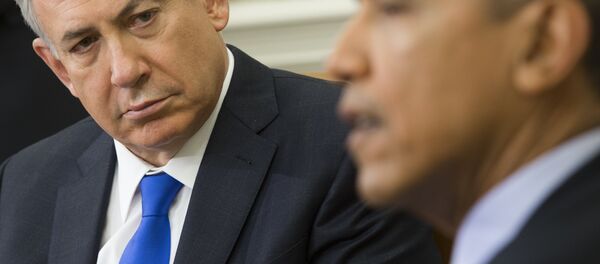The Russo-Turkish-Israeli rapprochement may result in the emergence of a trilateral strategic alliance.
"No doubt, Monday, October 10, 2016, will become a key date in Turkey's diplomatic history. On that day, the country's President Recep Tayyip Erdogan and his Russian counterpart, Vladimir Putin, signed an agreement on the Turkish Stream gas pipeline, which will bring Russian gas to Turkey and onward to the EU," Marc Pierini, a visiting scholar at Carnegie Europe, noted in his recent article.
"In short, the deal represents a tactical advantage to Turkey and a new strategic position for Russia, which will keep dominating gas supplies to the EU," the scholar emphasized.
However, as Turkish journalist Serkan Demirtas of Hurriyet Daily News pointed out on October 15, Ankara appears to be very interested in developing the Israel-Cyprus-Turkey gas pipeline project aimed at delivering natural gas from the Leviathan and Tamar offshore reserves to Europe.
On the last day of the World Energy Congress in Istanbul Israeli Minister of National Infrastructure Yuval Steinitz held talks with his Turkish counterpart Berat Albayrak for the first time since a crisis in ties between the countries, Demirtas underscored, adding that the meeting resulted in "a verbal agreement on engaging dialogue for energy cooperation."
"Not only in terms of economic returns, but cooperation between Turkey, Israel and Cyprus on such a big project could introduce a new strategic triangle in the Eastern Mediterranean at a time when the wider region really needs action that can bring stability," the Turkish journalist stressed.
In his article for New Eastern Outlook, F. William Engdahl, an American author and strategic risk consultant, clarifies that neither Moscow nor Tel-Aviv would be left out in the cold by Ankara; instead, it appears that a new trilateral energy alliance is emerging in the Middle East, the author assumes.
"Russia, Israel, and of all countries, Turkey, have opened up triangular talks to forge new cooperation on issues" including natural gas pipelines and intelligence sharing among the three in ending the Syrian crisis, Engdahl underscores.
However, Ankara's decision to take a step toward Moscow earlier this year has obviously upset Washington's applecart, he notes.
"Far from an anti-Russian move by Erdogan to buy Israeli gas and push Gazprom out, Russia, Israel and Turkey are now in talks to combine forces to focus on the huge EU gas market. By feeding both Israeli gas and Russian gas through Turkey, Erdogan gets his Turkish gas hub dream," Engdahl emphasizes.
The improvement in Turkish-Israeli ties "will naturally lead to the return of ambassadors, and it will also open the doors to huge opportunities of coordination between Turkey and Israel on issues of security and intelligence," Karkouti writes, adding that "on a parallel track, Erdogan is actively engaged in rebuilding his country's relations with Russia."
"Russia, Turkey and Israel have increased their cooperation on security issues and exchange of information on the situation in Syria," he points out.
According to Engdahl, the recent developments signal that Washington's influence continues to fade in the Middle East leaving the space for other geopolitical players.




